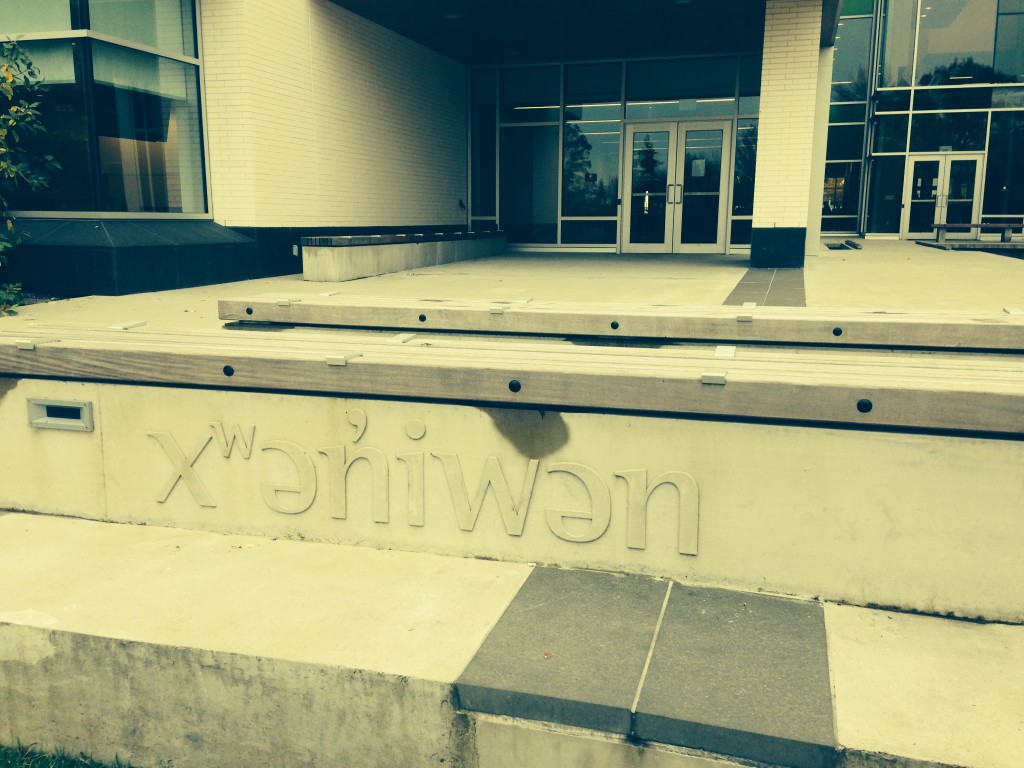(Alternate title: My Organizational Skills Are Entirely Occupied By A Legal Memo I’m Writing For Class, So I Couldn’t Think Of A Title That Would Encompass Everything Discussed In This Post)
I had trouble deciding what to focus this post on, given the number of revelatory topics that have come up over the past month. There’s the fact that, with the help of extensive time management, school has developed into a routine that has become surprisingly ordinary. There was the rather disconcerting complete lack of rain in October, although Vancouver natives continue to assure me that I will soon grow to hate this city’s weather. There was the unfortunate discovery that there is actually more to formal networking than putting on a suit. My first wine and cheese event was kind of awkward, mostly because I’m an awkward person. I find myself entirely unqualified to give any kind of advice on this topic, but I will say that if you aren’t perfectly at ease talking to strangers, the best thing you can do is bring a buddy who’s willing to do some of the conversational heavy lifting until you get comfortable. I was lucky enough to have a friend in my small group who was interested in the same firms I was, able to gracefully enter and exit a conversation, and who kindly but firmly impressed upon me that I couldn’t spend the entire time at the cheese table (the spread was really impressive). The nice thing is that networking, like everything else, gets easier with experience and practice.
Mostly, though, the most interesting November discovery has been this: with one week left in my first semester of law school, I think I’ve hit a key turning point. I can now effectively pretend, to people entirely uninvolved with the legal profession, that I actually know things about the law. It’s an interesting position to be in; a rather strange dissonance between being respected for your position as a law student, and being humbled in class on a daily basis by the reminders of just how much there is to learn. My first LSLAP client described his problem to me in detail and finished with “at that point I knew I needed to talk to a lawyer.” I got a little bit proud, and then immediately quite alarmed that I was actually being relied upon to act, even under heavy supervision, as a legal advisor.
Like pretty much any other type of coursework, 1L classes at UBC start with somewhat simple cases, leaving you with the mistaken impression that contract formation or tort actions are relatively straightforward affairs. Moving forward, though, succeeding cases and legislation tend to muddy many of these apparently clear concepts. As my public law professor has told us, one of the fundamental tenets of statutory interpretation is the ability to create ambiguity from something that seems straightforward. Reading cases for class often involves trying to disentangle that ambiguity and figure out how the court has interpreted it. It takes varying amounts of time for people to get the hang of doing this quickly and easily.
What I’m getting at is that of all the things I’ve learned through these first couple of months, the one that comes up the most is how complex legal doctrine can be, how many things have to be taken into account, and how diverse opinions are. It’s an education in how much is left to learn, combined with a dose of amazement over how much we’ve covered over the first semester alone. It’s exciting on some level; law school is full of people who genuinely enjoy learning, and we’re learning in abundance. But it also teaches you to be cautious, to be aware of personal assumptions and subjectivity, and to be consistently willing to modify your viewpoint based on what you may not have learned yet.
Thanks for reading!


